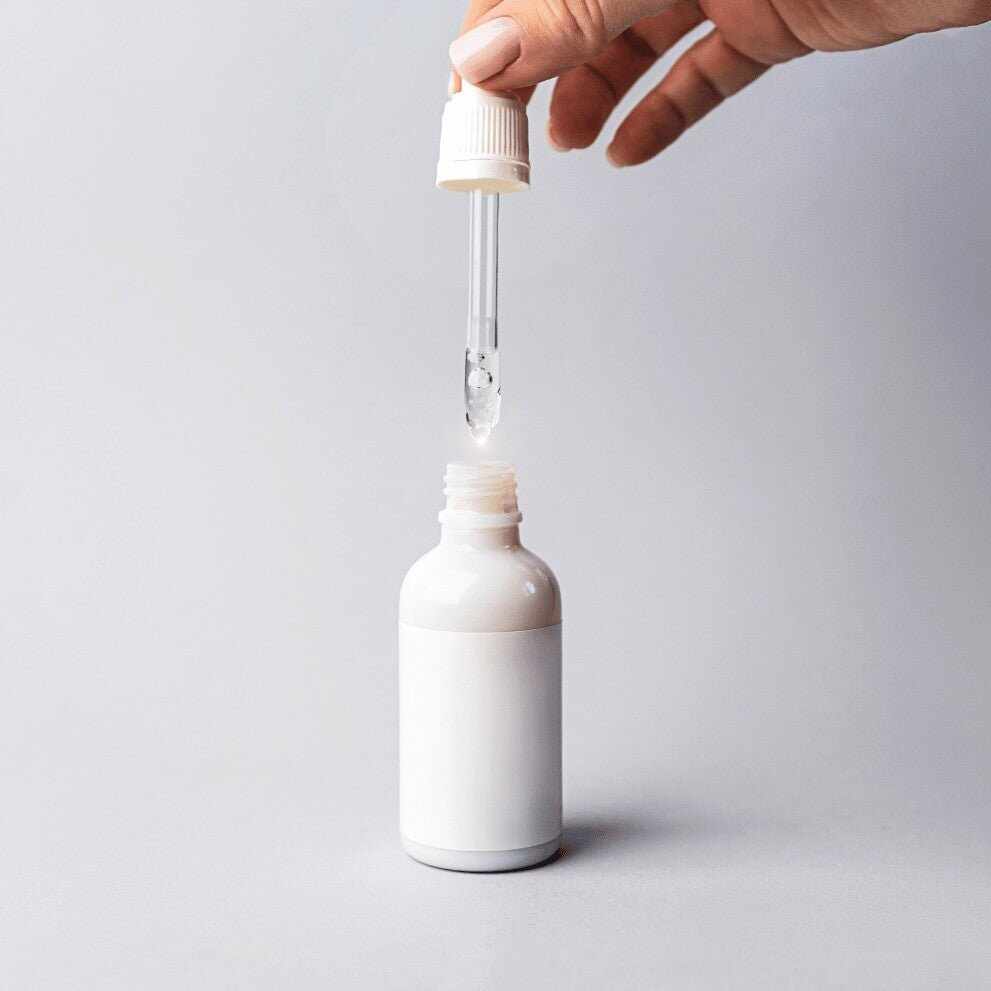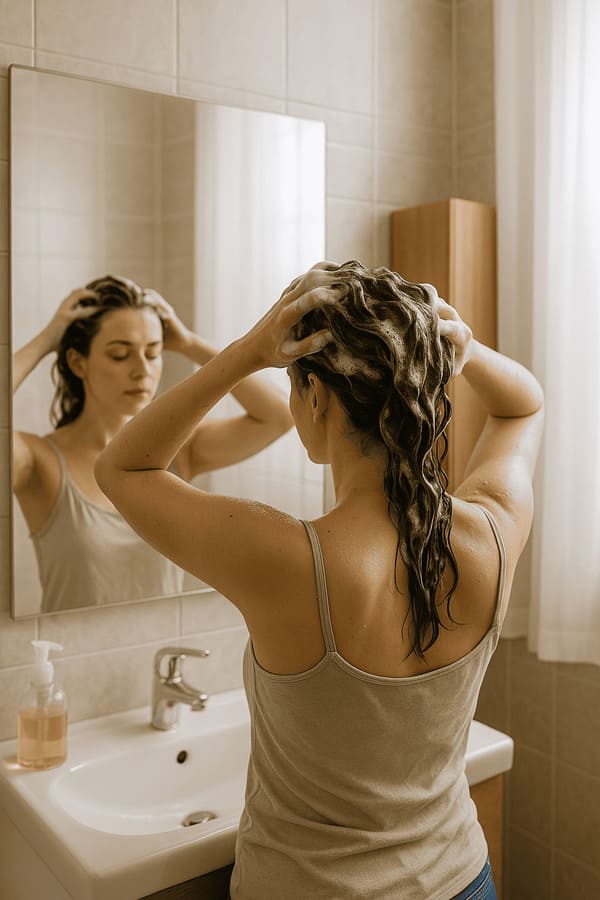Hyaluronic acid is one of the best-known anti-aging cosmetic ingredients , suitable for all skin types.
In this article we will talk about the properties of hyaluronic acid and above all how to choose the most suitable type for our skin.
What is hyaluronic acid?
Hyaluronic acid is a molecule that is naturally produced by our body and keeps tissues toned, elastic and compact. It is a very powerful moisturizer that behaves like a sponge: think that it can retain up to a thousand times its weight in water, thus counteracting dryness and loss of tone.
The hyaluronic acid you find on the market is produced in the laboratory, by bio-fermentation processes, which make this molecule effective, ethical and sustainable.
Why use hyaluronic acid?
As I was telling you, our body naturally produces hyaluronic acid but production slows down over time. At 50, for example, only half of the original hyaluronic acid capital remains in the skin and this decreases the skin's ability to remain toned and elastic.
Applying a cosmetic with hyaluronic acid maintains the correct level of skin hydration and helps prevent the signs of aging.
How do I recognize hyaluronic acid in a cosmetic?
You can find hyaluronic acid in cosmetics in various forms.
The main one is the one you find on the label as Sodium Hyaluronate and which can have different molecular weights. The molecular weight is very important within a formulation because each weight corresponds to a different cosmetic action.
- High molecular weight hyaluronic acid cannot penetrate the subcutaneous layers and acts by forming a film on the skin that counteracts water loss and keeps the skin smooth, even and firm.
- Low molecular weight hyaluronic acid can penetrate the skin and offers long-lasting hydration and a toning effect.
- Medium molecular weight hyaluronic acid helps retain water in the middle layers of the epidermis, completing the synergistic action of high and low molecular weight.
In some latest-generation cosmetics, you can find a new form of hyaluronic acid , which you can find on the label as Sodium Hyaluronate Crosspolymer. This is cross-linked hyaluronic acid whose molecules have a reticular structure that allows for longer-lasting results on wrinkles and volume.
This type of hyaluronic acid is the one used in cosmetic surgery as the main ingredient of dermal fillers, but it can also tone the skin when applied topically in a cosmetic.
Furthermore, its reticular structure makes it more resistant to the action of enzymes and therefore allows the active ingredient to last longer on the skin and to better convey the other ingredients present in the product.
Which hyaluronic acid to choose?
When choosing a cosmetic with hyaluronic acid, pay attention to the indications on the label. We often hear about products with very high percentages of hyaluronic acid, but the concentration of hyaluronic acid that you find in the products is usually equal to 1%.
As I was saying before, hyaluronic acid retains a lot of water and therefore makes the product very dense and viscous. A product with 3% hyaluronic acid would have the consistency of a pudding and would be practically impossible to use!
Hyaluronic acid is suitable for all skin types and all ages.
If your skin is young you need a product that helps you keep your skin hydrated , preventing the first signs of aging and the first expression lines. In this case you can use a serum with Sodium Hyaluronate with different molecular weights such as hyaluronic acid YU is a pure hyaluronic acid, with 3 different molecular weights.
The three molecular weights give you smoother, firmer and more toned skin, wrinkles and small sagging areas are filled, with an evident relaxing effect and reduction in the depth of wrinkles.

Starting from the age of 30/35, look for a cosmetic that contains Sodium Hyaluronate Crosspolymer which hydrates the skin and fills even the most marked wrinkles if present.
Hyaluronic acid is one of the most famous cosmetic boosters in cosmetics. In this article we explain everything about cosmetic boosters, how to use them and which are the best based on the various needs!
Read on and discover all our guides and tutorials for facial care !
[ApSC sc_key=sc3148331291][/ApSC]








